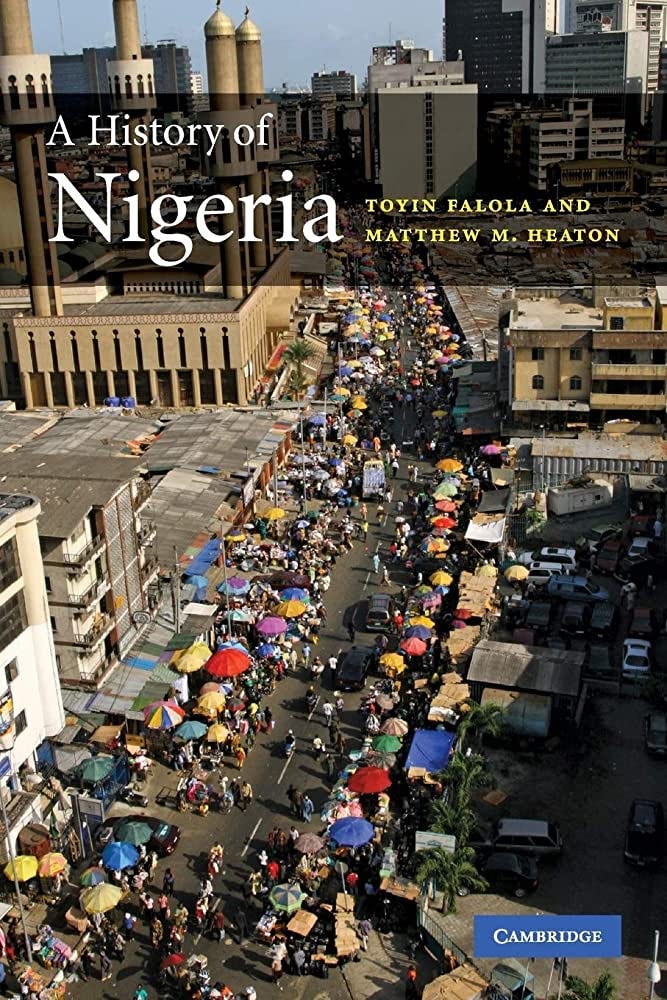Book Review: A History of Nigeria
If you want to have a bird eyes view of Nigeria, I highly recommend this book.
It is breathtaking the amount of work that went into this book. I have read several books on Nigerian history, but none was as ambitious as this. Toyin Falola and Matthew Heaton set out on an impossible mission. One has to be crazy or extremely smart to attempt to tell the full story of Nigeria for the past 10,000 years with all its complexity. This book begins in 9,000 BCE.
Now, something important must be said here. The term “Nigeria” itself is very recent. It came into existence just a hundred years ago. It is the product of British imperialism. The authors did an impressive work of tracing the different people that occupy what we call Nigeria today. Of course, all those who have lived in the present area called Nigeria have contributed in various ways to what we have today. However, in modern times, the years between 1500 and 1800 are important because the societies that existed in those years shaped the present Nigerian state. Nigeria is diverse, and nothing displays this diversity more than the different groups and cultures that have been joined together in this union. Nigeria’s diversity does not just cut across religion; it also cuts across ethnic groups and regions. The authors treated this complexity most impressively. The book helped me put Nigeria’s division in proper historical context.
As you read, you find yourself shaking your head and wondering why Nigeria, or rather, Nigerian leaders, did not take a different turn at various points. The eras before independence were more acceptable. It is understandable that the British wanted to plunder Nigeria and loot its resources. That’s painful but understandable. But for Nigerian leaders themselves, these are people who were supposed to build the country, unite it and give it a seat at the international table. However, all they’ve done is cause more divisions, loot the country's resources, and make the infrastructure far worse. When oil was discovered, it could have been the great resource that would make Nigeria abundantly rich; rather, it became the behemoth that was the permanent symbol of everything wrong with Nigeria.
One excellent part of this book was the chapter on Nigeria's influence on the international level, its influence across Africa, and how Nigerians are making an impact around the world. You think about it and realize that Nigeria has no reason to be this underdeveloped. We have no excuse for our poverty. We have no excuse for being a country in which nearly half of its population is regarded as poor.
The author's lucid writing made reading this book so delightful. If you want to have a bird eyes view of Nigeria, I highly recommend this book.




